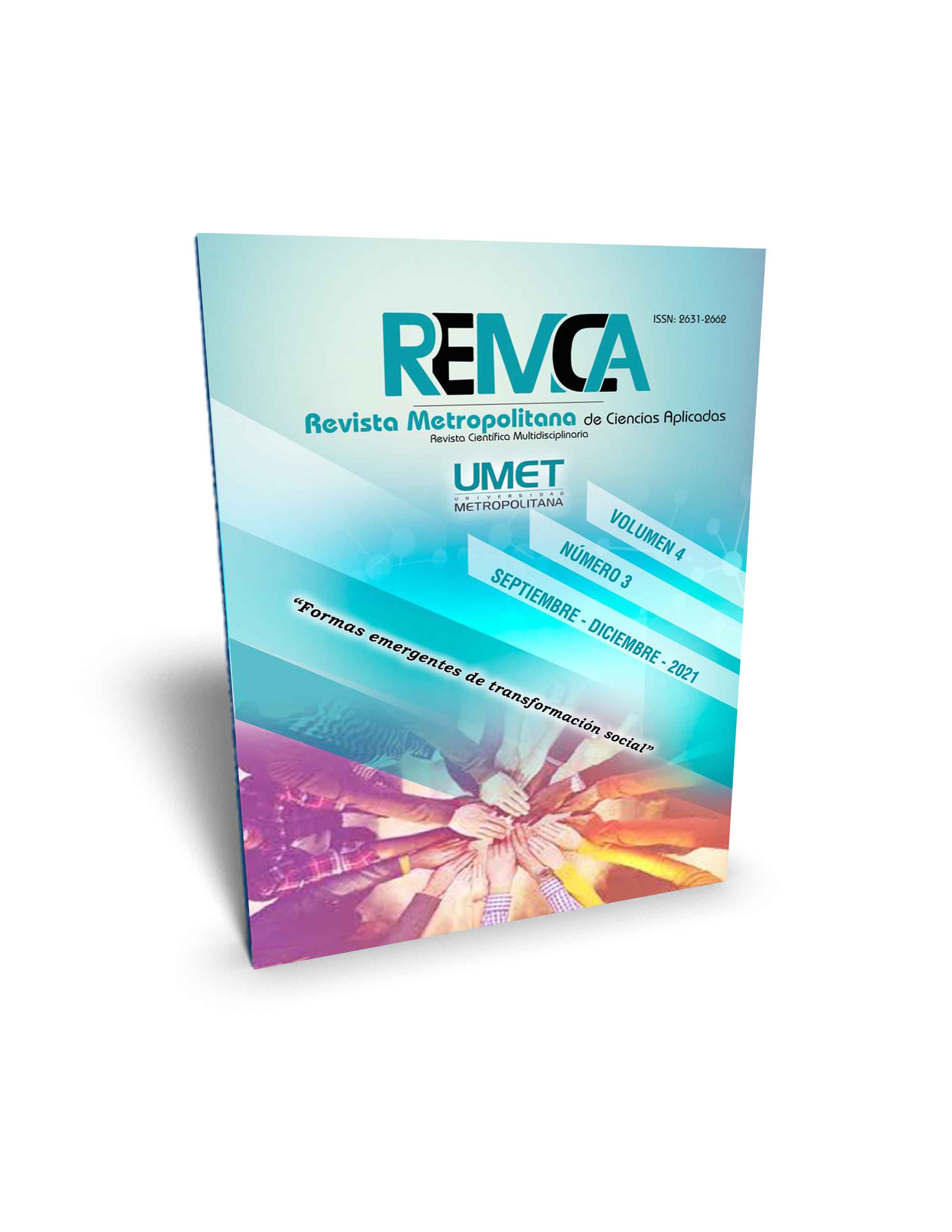Analysis of public policy learns at home and virtual teaching from the opinion of students of Higher Secondary Education
DOI:
https://doi.org/10.62452/earvmh94Keywords:
Virtual learning, students, public policyAbstract
The new normality in the face of the health emergency has created challenges in teaching where the combination of the traditional environment in the classroom has transitioned to the use of digital platforms, virtual classes promoting virtual education. This research is exploratory, quantitative, inferential and is based on the verification of the provisional theory regarding the performance of teachers at the middle schools in Hidalgo. The statistical model is based on a hypothesis test with the normal curve, using a large sample to determine if Ho: The performance of teachers in virtual classes has a positive impact on student development. A random sample of 123 students was analyzed based on the Likert scale and the results of the hypothesis came out positive; where the level of significance of alpha was 0.05 and the value of P value was 0.318 (p> ∝), making the null hypothesis is justifiable. Therefore, the evidence of the sample is considered sufficient or reliable, making the performance of teachers essential for the research of teaching public policy through “Learn at home” Hidalgo State High School College (COBAEH) case in Hidalgo.
Downloads
References
Aguilar Villanueva, L. F. (1992). La Hechura de las Políticas. Estudio Introductorio. México. Editorial. Miguel Ángel Porrúa Grupo Editorial.
Alonzo Jame, G. (2018). Políticas públicas para la formación docente desde el pensamiento crítico. Nostalgia y prospectiva de una relación verdaderamente necesaria. Memoralia, 58(53).
Boyatzis, R.E. (2008). Competencies in the 21st century.Journal of Management Development, 27(1), 5-12.
Cuba Esquivel, A. (2016). Constructo competencia: síntesis histórico-epistemológica. Educación, 25(48), 7-27
Cukierman, R. U., & Kalocai, G. (2019). El enfoque por competencias en las ciencias básicas: casos y ejemplos en educación en Ingeniería. https://www.academia.edu/40040784/El_enfoque_por_Competencias_en_las_Ciencias_B%C3%A1sicas_Casos_y_ejemplos_en_Educaci%C3%B3n_en_Ingenier%C3%ADa?email_work_card=view-paper
Di Franco, M., Di Franco, N., & Siderac, S. (2016). La formación docente en las políticas públicas: el campo de las prácticas como posibilidad. Praxis & Saber, 7(15), 17-40.
Frade, L. (2009). Planeación por competencias recuperado. https://www.academia.edu/34249643/Laura_Frade_Planeacion_por_competencias_1_
González, J., Wagenaar, R., & Beneitone, P.(2004). Tuning-América Latina: un proyecto de las universidades. https://rieoei.org/historico/documentos/rie35a08.htm
Ham, C. (1984). B. Hogwood and L. Gunn, Policy Analysis for the Real World. Oxford University Press.
Ibarra Colado, E. (2000). ¿Hacia una nueva cultura de la evaluación de los académicos?. Revista Mexicana de Investigación Educativa, 5(10).
Llivina, L. J., & Urrutia, R. I. (2014). La formación de un docente de calidad para el desarrollo sostenible. UNESCO. http://www.unesco.org/new/fileadmin/MULTIMEDIA/FIELD/Havana/pdf/Formaciondocentes_Llivina.pdf
Macías Esparza, A. C., & Valdés Dávila, M. G. (2014). Reconstrucción del rol docente de la educación media superior: De enseñante tradicional a enseñante mediador. Sinéctica, (43), 1-13.
México. Secretaría de Educación Pública. (2021). Oficial Site Secretaría de Educación Pública del Estado de Hidalgo. http://www.hgo.sep.gob.mx/
Ruay Garcés, R., & Garcés, J.L. (2012). Diseño y Construcción de instrumentos de evaluación de aprendizajes y competencias. https://www.academia.edu/41316653/Ruay_Garce_s_2015_Disen_o_y_construccio_n_de_instrumentos_de_evaluacio_n_de_aprendizajes_y_competencias?email_work_card=title
Sarramona J. (2000). Teoría de la educación. Reflexión y normativa pedagógica. Ariel.
Subirats, J., Knoepfel, P., Larrue, C., & Varone, F. (2008). Análisis y gestión de políticas públicas. Ariel.
Touriñán López, J. M., & Sáenz Alonso, R. (2012). Teoría de la educación, metodología y focalizaciones. Netbiblo.
United Nations Educational, Scientific and Cultural Organization. (2016). Declaración de incheón y marco de acción 2030. https://unesdoc.unesco.org/ark:/48223/pf0000245656_spa
Wright, Q., Lerner, D., & Lasswell, H. 1952). The Policy Sciences; Recent Developments in Scope and Method. The American Political Science Review, 46(1).
Published
Issue
Section
License
Copyright (c) 2021 Adriana Arlette Ibarra Ramírez, Maritza Librada Cáceres Mesa (Autor/a)

This work is licensed under a Creative Commons Attribution-NonCommercial-ShareAlike 4.0 International License.
Authors who publish in Revista Metropolitana de Ciencias Aplicadas (REMCA), agree to the following terms:
1. Copyright
Authors retain unrestricted copyright to their work. Authors grant the journal the right of first publication. To this end, they assign the journal non-exclusive exploitation rights (reproduction, distribution, public communication, and transformation). Authors may enter into additional agreements for the non-exclusive distribution of the version of the work published in the journal, provided that acknowledgment of its initial publication in this journal is given.
© The authors.
2. License
The articles are published in the journal under the Creative Commons Attribution-NonCommercial-ShareAlike 4.0 International License (CC BY-NC-SA 4.0). The terms can be found at: https://creativecommons.org/licenses/by-nc-sa/4.0/deed.en
This license allows:
- Sharing: Copying and redistributing the material in any medium or format.
- Adapting: Remixing, transforming, and building upon the material.
Under the following terms:
- Attribution: You must give appropriate credit, provide a link to the license, and indicate if any changes were made. You may do this in any reasonable manner, but not in any way that suggests the licensor endorses or sponsors your use.
- NonCommercial: You may not use the material for commercial purposes.
- ShareAlike: If you remix, transform, or build upon the material, you must distribute your creation under the same license as the original work.
There are no additional restrictions. You may not apply legal terms or technological measures that legally restrict others from doing anything the license permits.




